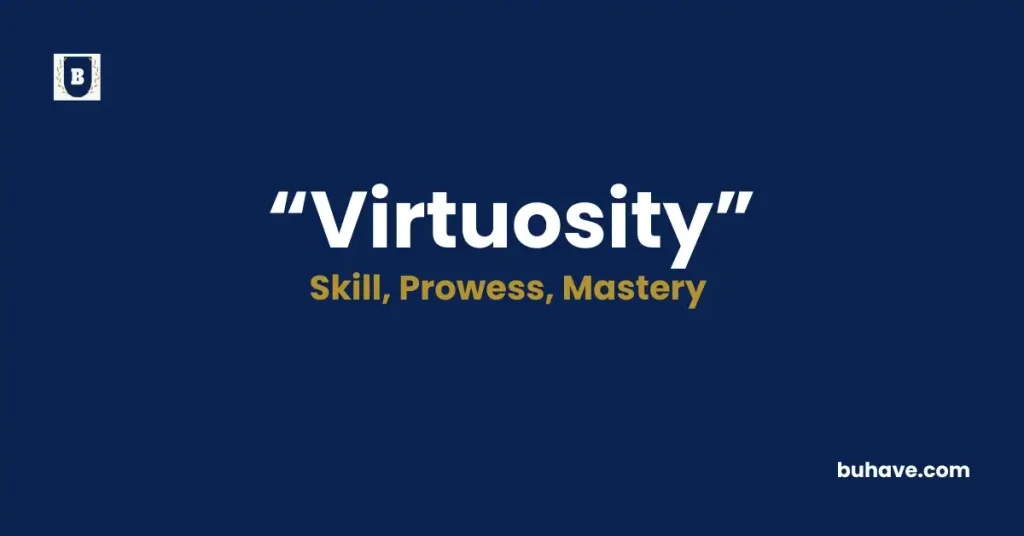The word ‘Virtuosity’ (Noun) refers to great technical skill, brilliance, or mastery, especially in artistic pursuits like music, painting, or performance. In this guide, you’ll learn the full definition, synonyms, antonyms, etymology, and real-life examples of how to use ‘Virtuosity’ correctly in sentences.
Virtuosity Explained in Depth
A complete and detailed guide to the word Virtuosity, including meaning, definition, examples, etymology, synonyms, and antonyms.
Meanings of Virtuosity
Virtuosity is a noun meaning great technical skill, expertise, or brilliance, especially demonstrated in artistic, musical, or creative fields. It often implies both mastery and a sense of showmanship.
Definition
Virtuosity refers to exceptional technical skill or brilliance, particularly in the arts. It implies mastery and flair in performance, often with a sense of impressiveness that draws admiration. It often implies both mastery and a sense of showmanship.
Etymology
- Derived from the Italian word virtuosità, meaning “skill” or “excellence.”
- Rooted in the Latin word virtuosus, meaning “skilled” or “virtuous.”
- Entered English in the mid-18th century as a term describing technical mastery and excellence.
Example Sentences
- The pianist’s virtuosity left the audience spellbound.
- Her virtuosity in painting earned her international acclaim.
- The violinist’s performance was marked by breathtaking virtuosity and emotional depth.
Virtuosity Synonyms
- Mastery
- Skill
- Expertise
- Flair
- Artistry
- Proficiency
- Brilliance
- Dexterity
- Finesse
- Excellence
Virtuosity Antonyms
- Ineptitude
- Incompetence
- Clumsiness
- Amateurishness
- Awkwardness
- Mediocrity
- Unskilled
- Inexperience
- Crudeness
- Unrefined
FAQs about Virtuosity
Here are some frequently asked questions (FAQs) about the word “Virtuosity”
1. Is virtuosity limited to the arts?
While virtuosity is most commonly associated with artistic fields like music and painting, it can also apply to other areas where exceptional technical skill is displayed, such as sports or craftsmanship.
2. Can virtuosity be learned?
Yes, while natural talent helps, virtuosity is often the result of rigorous practice, dedication, and study.
3. What is the difference between virtuosity and mastery?
Mastery emphasizes complete control and understanding, while virtuosity highlights the brilliance and flair of technical skill, often with a showy or impressive quality.
4. Does virtuosity always imply a performance?
Not necessarily, but it often does, since virtuosity usually draws admiration through a display of exceptional skill.

















